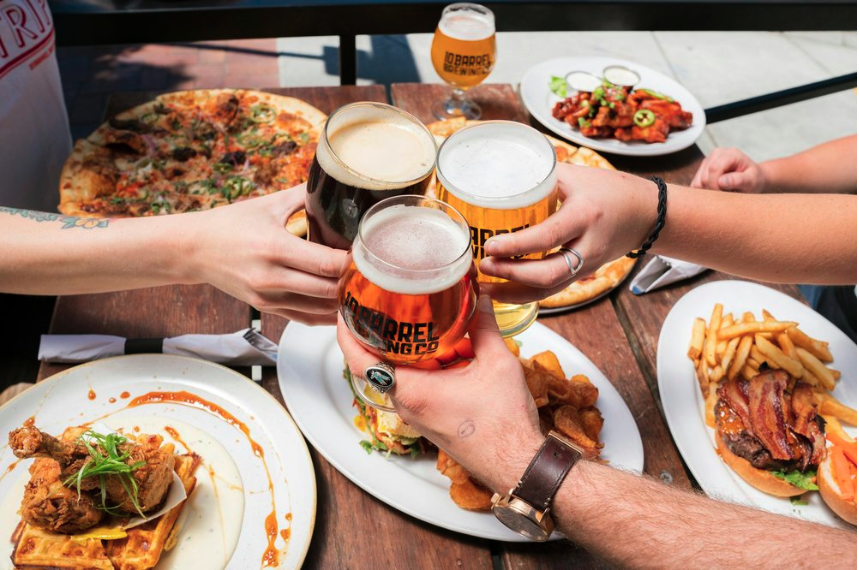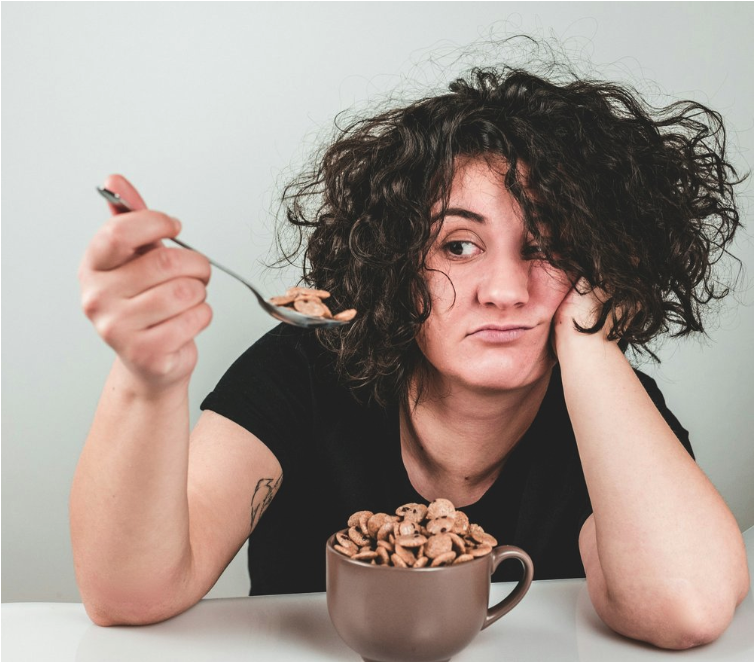
Why Do You Not Eat All Day, then Overeat or Binge at the End of the Day?
This is very common in new clients coming to see me to help them eat healthier. In the pursue for weight loss, many individuals turn to chronic dieting as a perceived solution to manage their weight. However, the repercussions of this approach can be far-reaching and detrimental, particularly for professional women who often find themselves juggling demanding careers alongside societal pressures to maintain a certain body image. Chronic dieting not only impacts physical health but also disrupts the body's natural ability to regulate hunger, leading to a cycle of disordered eating that can be difficult to break.

Why Dieting Does Not Work
For many women, the journey to weight loss can feel like a never-ending struggle. Despite trying countless diets and weight loss strategies, the results are often temporary or non-existent. The frustration of not achieving lasting weight loss is compounded when emotional eating plays a significant role in the relationship with food. Understanding why traditional dieting fails to address the complexities of weight loss, especially for those who battle emotional eating, is key to finding a more effective and compassionate approach.

Why You Might Still Be Hungry After Eating Three Bowls of Spaghetti
If you find yourself eating multiple bowls of spaghetti and still feeling hungry, you're not alone. This experience can be frustrating and perplexing, especially if you believe you've consumed enough to satisfy your hunger.
Eating until you're physically full but still feeling hungry or wanting to eat more is a common experience for many people. This phenomenon is influenced by a complex interplay of physiological, psychological, and environmental factors.
While fullness is a physical sensation triggered by the stretching of the stomach, the feeling of hunger or the desire to keep eating often stems from other cues, such as emotional needs, cravings, or habits. Understanding why this happens requires exploring the differences between physical hunger and emotional hunger, how certain foods impact satiety, and how factors like stress, distraction, and dieting history can disconnect us from our body's natural hunger and fullness signals?

Natural Supplements to Help People Struggling with Binge Eating Disorder
People with Binge Eating Disorder (BED) often struggle with irregular eating patterns, which can lead to nutrient deficiencies. These deficiencies may arise due to consuming large quantities of low-nutrient, high-calorie foods during binges, followed by periods of restrictive eating or skipping meals.

How to Stop Hating Your Body?
Body hate is a complex issue, deeply rooted in emotional and psychological experiences. It goes beyond dissatisfaction with physical appearance and often reflects unresolved feelings of inadequacy, trauma, and societal pressure.
To truly overcome body hate, it’s crucial to address these underlying causes and adopt tools that nurture self-love, confidence, and healing.

Link Between Childhood Trauma and Binge Eating Disorder in Women

Are You an Overeater or Binge Eater?
In a world where food is abundant and social norms often revolve around indulgence, it's not uncommon for individuals to occasionally overeat or indulge in larger portions than they intended.
However, for some, these occasional instances can develop into patterns of behavior that go beyond mere overindulgence, leading to more concerning eating habits. It’s important to understand the distinction between overeating and binge eating. While both involve consuming large amounts of food, they differ significantly in terms of frequency, control, and psychological impact.
Understanding the differences between overeating and binge eating is crucial for recognizing when eating habits may be veering into unhealthy territory. In this article, we delve into the nuances of these behaviors, exploring the signs, symptoms, and implications of both overeating and binge eating. By shedding light on these issues, we aim to provide clarity and support for individuals who may be grappling with their relationship with food, empowering them to seek balance and cultivate healthier eating habits.

5 Secret Root Causes of Emotional Binge Eating No One Talks About
The causes of emotional binge eating are unique to each individual. There isn't a single cause that fits everyone, and it's not a problem with one root cause—it's multifaceted.
Emotional binge eating is an emotional problem that requires an emotionally focused approach. This is why most recommendations that focus solely on changing behavior do not work. They overlook the fact that emotional binge eating is a symptom of deeper emotional issues.
Understanding these emotional causes can be key to addressing and managing binge eating.

The Benefits of Life Coaching for Women Struggling with Binge Eating, Food Addiction, Body Hate, and Weight Problems
While hypnotherapy and intuitive eating focus on healing the mind and body connection, promoting emotional and physical well-being. Life coaching complements this by offering practical strategies and ongoing encouragement, ensuring that women stay on track with their healing journey.
Life Coaching also provides the structure and motivation needed to set and achieve goals, while hypnotherapy addresses subconscious barriers and intuitive eating fosters a healthy relationship with food. Together, they offer a well-rounded support system that tackles both the conscious and subconscious aspects of eating behaviors and body image.
The combined approach helps women develop sustainable habits and mindsets. Intuitive eating encourages long-term healthy eating patterns, hypnotherapy reprograms negative thought patterns, and life coaching provides the tools and accountability to maintain these changes over time.

Benefits of Holistic Nutrition Therapy for Chronic Dieting & Emotional Binge Eating
Holistic nutrition therapy focuses on properly nourishing the body, enhancing digestion, identifying and addressing food sensitivities, and rectifying nutrient deficiencies. It steers away from the concept of a weight loss diet or categorizing foods as inherently good or bad. Many of my clients experience weight loss as a result of addressing the underlying physiological issues, not as a result of a "dieting." And weight loss is always a side effect of taking care of the house, not a main focus.

How Does Healing from Emotional Binge Eating Look Like?
Starting on the journey to healing from an eating disorder is a courageous step towards reclaiming your life and nurturing your well-being. However, the road to recovery is not always easy, and it's important to understand the feelings and thoughts you may experience along the way.
Healing often feels like confusion when your new beliefs challenge your old beliefs and thoughts. It’s like remodeling a home: Things have to be chaotic first before the beautiful outcome shows up.

8 Common But Not Unusual Childhood Events that Lead to Emotional Binge Eating in Adulthood
As a holistic dietitian, I fix my clients’ gut issues, hormone imbalance, and food sensitivity, and they start feeling better and lose weight without starvation or brutal daily exercise.
But, 2-3 months later, most will revert to their old eating habits. Then I realized that my clients were all struggling with emotional binge eating disguised as “I love sweets,” “I have a sweet tooth,” or “I can’t live without [insert your food addiction] .”

Quiz: Are You an Emotional Binge Eater?
Emotional binge eating is a complex mental health condition where food becomes a tool for coping with emotional distress or exerting control over one's life.
Emotional binge eating is not all about food but is rather a maladaptive coping mechanism for managing overwhelming feelings or life stressors.
The act of eating or restricting food is often a manifestation of deeper emotional struggles, such as low self-esteem, perfectionism, trauma, or anxiety.

10 Common But Unspoken Causes of Weight Gain Your Doctors, or Dietitians Don't Talk About
If you’ve been eating less than 1000 calories every day and exercising an hour every day, tracking every calorie you eat and burn, and are 100% sure that you’re eating a calorie deficit diet, and yet you are not losing weight, you know something's not right.
And it is not your calorie calculations. I’m sure your calorie calculations are on point, knowing that this is likely your thousandth dieting attempt.
What this shows is that calories are not your enemy.